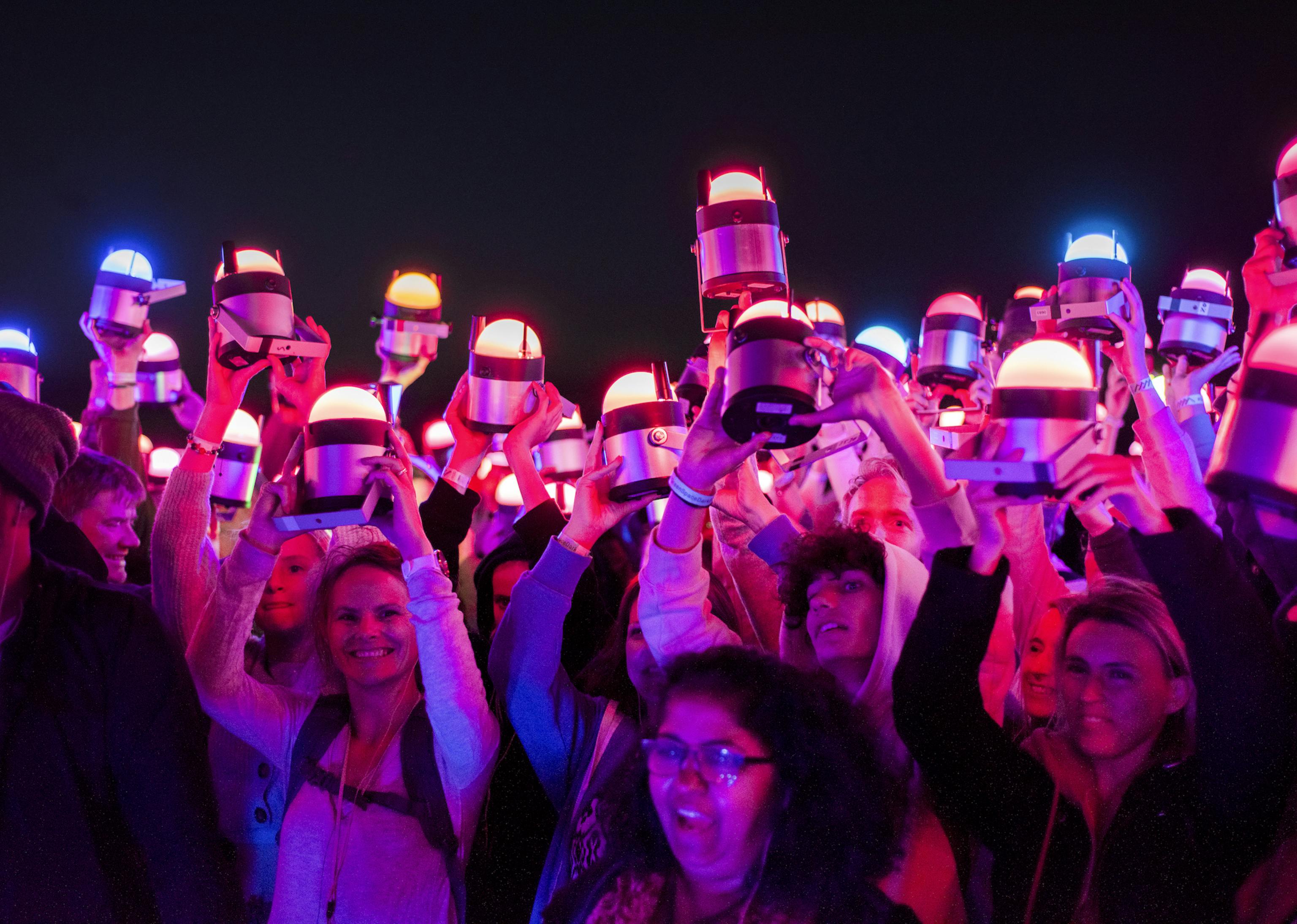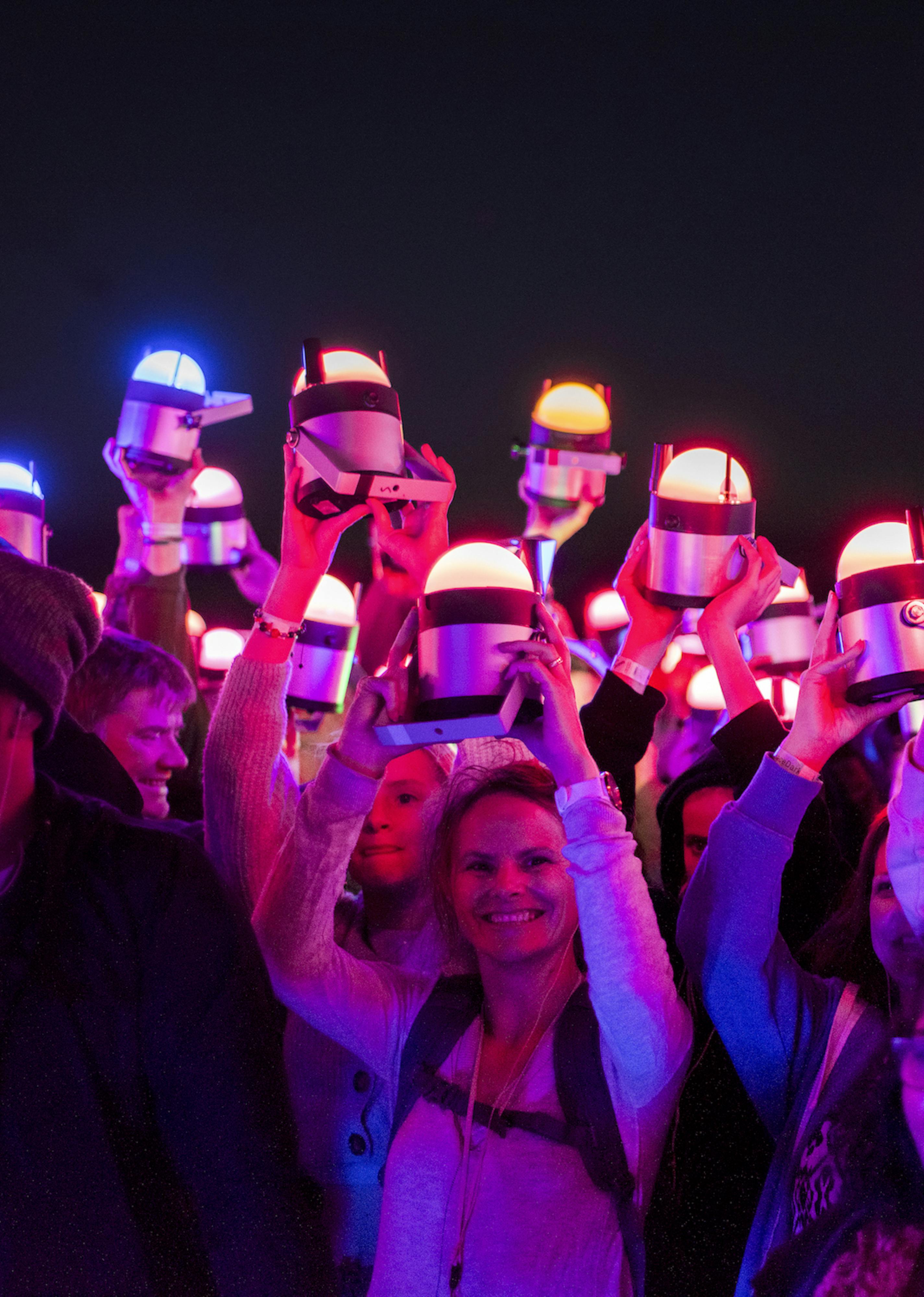Green Space Dark Skies (GSDS) was our ambitious cross-sector collaborative project commissioned by UNBOXED: Creativity in the UK in 2022. The project put environmental sustainability at its heart, achieving major sustainability successes and impressive carbon savings – and a new Sustainability Impact Report shares best-practice advice.
To meet the challenge of the climate emergency, Green Space Dark Skies employed a collective and collaborative approach. The open sharing of knowledge and experience was vital to establishing a new working culture where sustainability was as central to the event production as health and safety.
Green Space Dark Skies, as a large-scale national project, provided the resources and partners to embed sustainability from the planning, delivery and measurement stages towards achieving ambitious targets across both the social and environmental aspects of the project. The scope of data collection was vast, including energy, transport, materials, food and beverage, waste, accessibility, diversity, and digital. The aims were to leave no trace and be climate positive, with the project ultimately removing more carbon from the atmosphere than it produced.
The report contains the carbon data for the entire project, shares learnings and innovations gathered on the way, and does not shy away from some of the challenges faced.
The greatest carbon savings were made by Lumenators (participants), staff and crew using coaches instead of individual car journeys (47.23 tonnes of carbon dioxide equivalent, or CO2e); serving vegetarian meals instead of meat (approx 25-30 tCO2e); and choosing hotels with green energy tariffs (16.3 tCO2e). Some other key statistics:
- 50/50 overall split of vegetarian and meat meals
- 71% of suppliers came from within 50 miles
- 13 of 19 events used over 80% renewable energy
- 81% of Lumenators shared transport
- 26% of accommodation had a green energy tariff
- 99%+ of our waste was diverted from landfill, following the waste hierarchy
- We accurately measured impact across all areas for all stakeholders for scope 1, 2 and 3
- We took action to ensure the long-term impact of the activity is climate positive through mitigating ten times the carbon footprint through the planting of 15,154 trees with the Woodland Trust*

